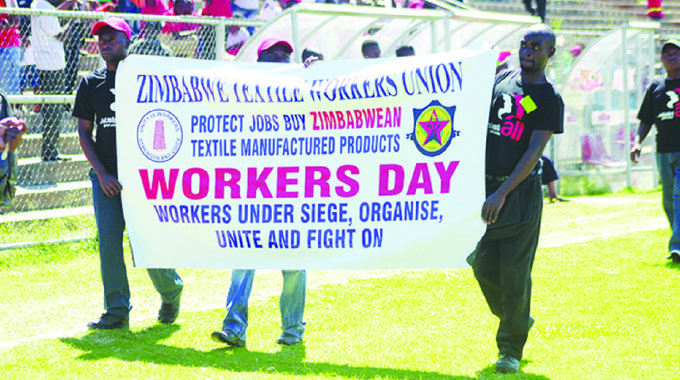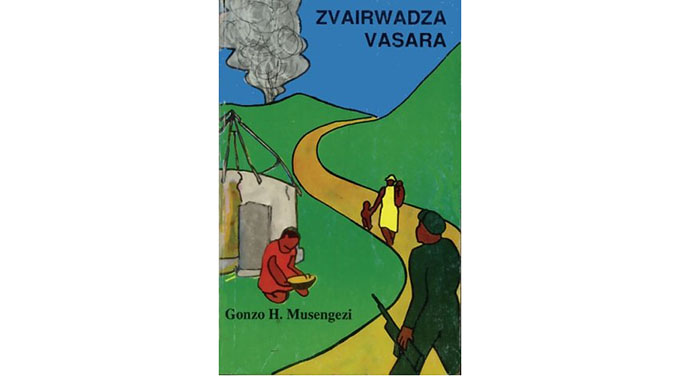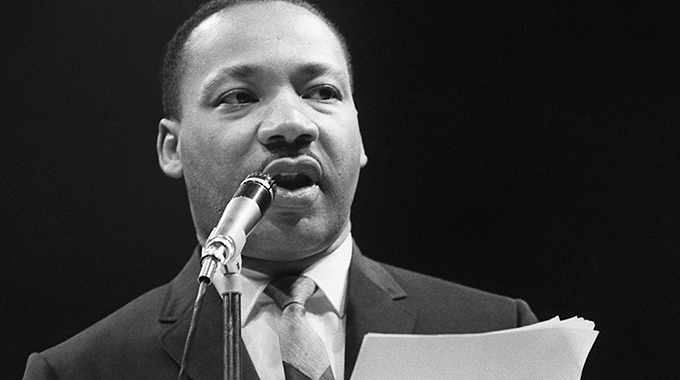The nature of belonging in ‘Wide Sargasso Sea’
Elliot Ziwira @ The Book Store
Jean Rhys explores the problematic nature of belonging in “Wide Sargasso Sea” (1966) through characterisation, metaphors and setting. Although slavery has been abolished, the dynamics that have been in place remain functional. Using the point of view of former white slave masters, who struggle to locate themselves in an abolitionist world, Rhys contextualises the myriad problems that come with generations of displacement and colonial hegemony.
The writer “explores at great length the identity crisis experienced by both the white Creoles and the coloniser returning to the colonised nation” (Geenty, 2009). The return to the source or the empire in times of crises will always be baneful, as the solution becomes farfetched.
Rhys purveys the relationships that exist within the quarantined white community that fails to fit into the British’s world, the Mullato’s world or the black man’s world. The protagonist, therefore, “represents the four themes of identity, displacement, refuge and return” (Hermansson, 2012:2). Slavery may be over, but the continuation of patriarchal dominance and an economic structure that excludes the poor and marginalised scuttles individual aspirations.
In “Wide Sargasso Sea”, Rhys highlights the issue of identity through the white man’s lenses, using a first person narrative point of view, which follows Antoinette, Mason and Rochester’s experiences. Central to the identity crisis in the novel is the issue of materialism; poverty is associated with blackness, and affluence with whiteness. The phenomenon of race is not clear-cut where wealth or lack thereof is involved, which makes it difficult for the protagonist and her family to fit into either the Creole community, the British community, or the black community.
Because the representative voice remains predominantly white, the issue of belonging remains problematic. “Whether Creole or British the voices of the central characters are those of white people only” (Geenty (2009). Through the authorial voice, which is also white, Rhys does not hide her chagrin at the fact that poor whites are regarded as “black cockroaches” or “white niggas”.
Like Doris Lessing in “The Grass is Singing” (1950), Rhys hides behind liberalism, yet remains contemptuous of a white person who betrays his/her race through taking a siesta with poverty; it is simply unacceptable. Antoinette intimates: “I never looked at any strange negro. They hated us. They called us white cockroaches. Let sleeping dogs lie. One day a little girl followed me singing, ‘Go away white cockroach, go away, go away’” (Rhys, 1966:6).
The narrative voice, promulgated, therefore, bares a sense of entitlement that also obtains in Lessing’s “The Grass is Singing”. Rhys is of the view that Antoinette and her family should be ostracised for bringing disgrace to the white race, thus Mr Mason should come to their rescue. Mr Rochester’s constant references to the possibility of African genes in the protagonist’s blood are testimony to the complex nature of belonging, especially when the so called whites insist on upholding the purity of their race. Through the portrayal of Mr Rochester as arrogant, mean and aloof, Rhys seems to insist on the upholding of whiteness as a way of maintaining the status quo, without calling to scrutiny the moral hypocrisy involved.
The complex nature of entitlement exposes the reality of change in the face of contradictory worlds brought about by slavery and displacement, as is illustrated below: “We ate salt-fish – no money for fresh fish. That old house so leaky, you run with calabash to catch water when it rains. Plenty white people in Jamaica. Real white people, they got gold money. They didn’t look at us, nobody see them come near us. Old time white people nothing but white nigger now, and black nigger better than white nigger” (Rhys, 1966:8).
The contradictory nature of whiteness here illuminates Rhys’ idea of the rift between the old order and the new order. The terms “real white people”, and “old time white people” purveys the contrasting social standards used to demarcate social boundaries. The former white masters are now equated to “white nigger now”.
The advent of a new breed of white men, who are not tied to mortgages and debts, hence, able to buy land for their use, culminate in the fall of standards on the part of the “old time white people”. Antoinette, who owns no more than two dresses and lives with her family in a dilapidated house, along with her poor family, falls into that class of whites, who are poorer than “black nigger”.
“Wide Sargasso Sea” sheds light on the varied view of men and women on the Caribbean landscape. Although Mason’s concern appears to be his ego, he lacks the ability to decipher the relationship that exists between the now native whites and the black people. Because he scantily understands black people, he believes that, “they’re too damn lazy to be dangerous” (ibid:16).
On the other hand, Antoinette’s mother, Annette, is conscious of the fact that, “the black people did not hate us quite so much when we were poor” (Rhys: 17). The issue of class becomes paramount here, as poverty and whiteness cannot be allowed to co-exist. Antoinette’s mother, therefore, is of the view that migrating may be a better option if the reputation of the race is to be preserved.
The novel highlights how the issue of belonging, response to societal expectations and the law seems to favour blacks as compared to their old white counterparts (Geenty 2009).
Amelie rides on Mr Rochester’s moral weakness to move to France to pursue a dressmaking dream, and explore her sexuality. In contrast both Antoinette and her mother fail to rise up the social ladder, through the discovery of their sexuality. The claustrophobia that perpetually pursues them has its roots in their failure to rise above societal restrictions.
Blacks circumvent the restrictive social and legislative laws by defying the police and the jail systems, yet whites create mental, physical and psychological prisons for each other. Tia’s portrayal as a strong and resilient character, who refuses to be emotionally and physically weakened through pain, suggests the go-getter attitude of blacks in the face of adversity. Tia, like Christophine, becomes Antoinette’s pillar, which brings out the desperate situation that whites faced after the abolition of slavery.
White characters, according to Ramchand (1969) cited in Panizza (2009), are in a kind of ‘terrified consciousness”, “which occurred with decolonisation, and resulted in a fundamental insecurity and sense of danger haunting the minds of both the colonisers, who saw the empire they had created collapse, and the white Creoles, whom the natives identified with the Western invader”.
Fear becomes a rallying point, as is depicted through Rochester, who fears rejection from Antoinette. He is aware that she plays an important part in his own reputation and that of the empire, thus he seeks to destroy her spiritual link to her grandmother by renaming her Bertha. He attempts to erase her Creole identity and reclaim her as British.
The deep-rooted myths of black women’s sexual virility as compared to white women depicted through the characters of Mr Rochester and Mr Mason leads to sexual oppression. The principle of co-existence and reversal of class divide suffer a bane through Rochester’s insistence that there may be nigga blood in Antoinette’s veins, even though she is white. Hypocritically, however, both Mr Rochester and Mr Mason lust over black women.
The scramble for Africa and the subtle nature of colonisation are probably reflected in the following lines: “He didn’t come to the West Indies to dance; he came to make money as they all do. Some of the big estates are going cheap, and one unfortunate’s loss is always a clever man’s gain” (Rhys, 1966:13).
Rhys justifies the colonisation of Africa on the premise that the continent was backward, thus, needed white civilisation for it to be enlightened. The extended metaphor of African beauty exposes it to brutality and deceit disguised as aid. The sexual pun played on Antoinette and Amelie is metonymic of the molestation of Africa and its resources.
Colonisation leads to psychological trauma which inhibits individual growth, especially if read in the absence of individual agency, because of lack of a collective fighting spirit. Antoinette’s uncertainty over her surname is a culmination of her mother’s alleged promiscuity; hence, she remains befuddled of her belonging. Antoinette’s outward and inner turmoil can be traced to her personal confrontation with repulsion because of a collapsing familial base as well as “the political tumults that mark the beginning of decolonisation” (Panazzi 2009:7). She remains in her claustrophobic cocoon, as she tries to escape from a hostile world that she neither creates nor understands.
Antoinette’s inability to lay claim to her origins through a family tree, her failure to find solace and protection from her mother leads to dissociation, which unhinges her faculties. Subsequently, her relationships with men become barren; making suicide imminent as an elixir from her suffering.
The white society that seemed to enjoy prominence is disrupted due to a combination of historical imbalances and societal reorientation. Antoinette’s lack of either paternal or maternal contact in her daily travails and the perpetual verbal and emotional abuses she suffers at the hands of the black community leaves her disjointed and emotionally traumatised. Communication to her becomes burdensome, be it intimately or otherwise.
The heroine’s past experiences rob her of a communicative voice, which does not only expose her to manipulation, but impacts on her sense of worth. Because she is vulnerable to both the black community, which hates her, and the white community, which is disgusted by her poverty, she seeks an outlet in a nobler identity proffered by Rochester.
An object of ridicule, normlessness and a ghastly travesty of whiteness, Antoinette symbolically loses family, as her brother fails to recognise her when he visits, thus, confining her to a problematic existence. She confesses: “If I’d been wearing that (red dress), he’d have known me.”
As highlighted by Geenty (2009): “The fact that her brother, having come to see her, fails to recognise his sister in the woman he meets in the cold attic, indicates the state of dispossession Antoinette has reached.” This purveys the extent to which hostage and manipulation are capable of robbing one of an identity. Rhys, however, propagates the need for one to accept the historical burdens that scald his/her feet, as stepping stones to a better future, instead of simply yearning for what could have been, as Antoinette later learns to accept herself as she is.
Through Mr Rochester and Antoinette’s relationship, Rhys both metaphorically and literally highlights the nature of interaction between the rich and the poor; the oppressed and the oppressor; the colonised and the coloniser. Financially, Rochester uses Antoinette, exploits her physically, emotionally manipulates her and tortures her psychologically. In the end, due to bodily incarceration, Antoinette commits suicide.
Antoinette’s suffering at the hands of Rochester equates to the way the coloniser (Britain) treats the West Indies. The relationship between the empire and the former colonies hinged on the exploitation and continued robbery of African and Caribbean countries. Antoinette, like Mashingaidze Gomo’s Tinyarei in “A Fine Madness” (2010), symbolically stands for the perpetual rape of the female species and the colonised by the imperialistic white man.
The emerging viewpoint in “Wide Sargasso Sea” is that, white people without oppressing others are nothing but “white cockroaches”, who find themselves at sixes and sevens in an attempt to lay claim to either the Caribbean or the European cultures. As Geenty (2009:2) puts it across, “‘Wide Sargasso Sea’ is Rhys’s own (personal) exploration of what it means to be of Caribbean descent, and how the European master culture views you, culturally and socially, as a result.”
The source of Mr Rochester’s ego and his nobler than thou air is rooted in the empire’s hegemony over former colonies. He believes that he alone can protect Antoinette, with traces of nigga blood in her veins, from the black citizenry.
This also explains Antoinette’s confession: “And I’ve heard English women call us white niggers. So between you I often wonder who I am and where is my country and where do I belong and why was I ever born at” (Rhys, 1966: 77). Because slave trade has played out its last course, former slave masters were left hanging onto straws. Rhys attempts to foster co-existence by downplaying artificial binaries for racial equality to prevail, as the burning incidence suggests: “The man said, ‘So black and white, they burn the same, eh?’” (ibid: 26). However, because the authorial voice remains predominantly white, the narrative voice inclined towards whiteness, and the panacea is sought in the empire’s benevolence, Rhys fails to bring closure to racial differences that remain glaringly wide as the Sargasso Sea.
Christophine and Antoinette exhibit traits of a self-admission to the frailties of womanhood, which find an outlet through the authorial voice projected. Realising Antoinette’s predicament, Christophine admits that: “All women, all colours, nothing but fools” (ibid: 84). Ironically, the emotional trauma that the protagonist and her family suffer comes from the salvoes of women; white or black. In the end women are the ones who lose everything; inheritance and psychological balance. It all this points to lack of agency and willpower on the part of the fairer sex; and this is what Rhys questions.
The feeling of displacement pervading “Wide Sargasso Sea” on the part of white characters articulate the challenges of merging characters with different identities, as Bolland (1998) posits that, “creolisation is a version of the old melting pot hypothesis evolving from the blending of diverse original elements”. The surrealistic mood permeating the fictional experiences of the characters has its base in the halting of oppressive cultural synthesis. Reality becomes a mirage that individuals cling to as a vent of escape from an oppressive world. London and the West Indies become for Antoinette caricatured dreamlike places that fail to claim her as a denizen.
Caught in no man’s land the heroine totters on the fringes of the different sites of the metaphorical Sargasso Sea. Such is the tragedy of displacement, dysfunctional co-existence and social dynamics that play out at the doorstep of colonisation. It is an experience that only one who endured it can retell in such detail as Rhys does, albeit with an element of prejudice.
Through white lenses, Rhys, in “Wide Sargasso Sea” projects the phenomena of displacement, dysfunctional co-existence and a shift in social dynamics. However, it is her honesty, clarity and objectivity in giving an outlet to the gagged voice of burdened women, whose memory seems to be obliterated as a result of colonisation, abolition and racial mystification, which call for scrutiny. Rhys’ own troubled childhood is autobiographically reflected in the fictional experiences of the white characters, which makes her handling of the issue of identity and belonging authentic and honest. But the West Indies is not a place for white people only, and solutions to their problems cannot be found outside their own boundaries as the writer seems to suggest.







Comments